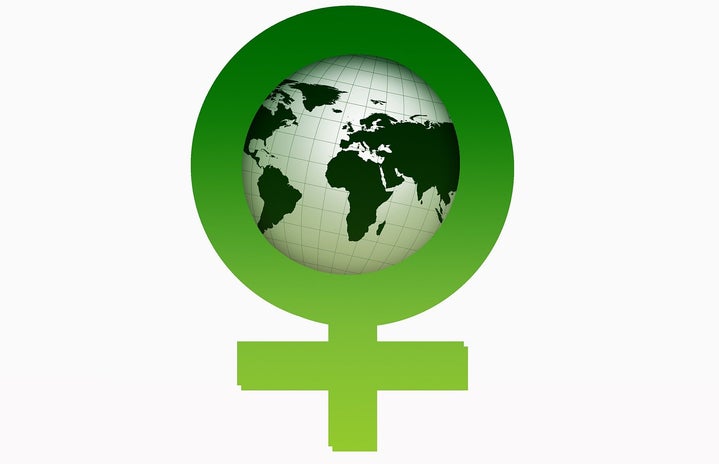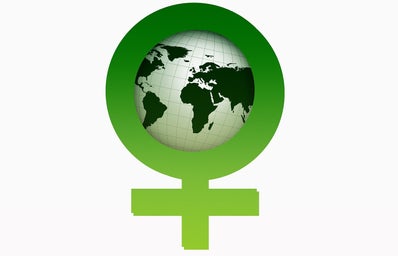In the late 1970s, Kenyan environmentalist and social activist Wangari Maathai was looking for how to solve Kenya’s deforestation problem. The commercial monoculture farming practices established by the British during colonial times to produce stocks of non-native trees for the lumber industry led to the destruction of native Kenyan forests. Maathai found that this environmental degradation had effects that went well beyond the forests themselves.
By looking at local communities in the region, she saw how women were directly being affected by this destruction, as they complained of streams drying up, unreliable food supplies, and having to walk further to search for firewood.
Maathai helped to establish the Green Belt Movement, an organization that focused on providing resources for and teaching these local women to plant and maintain trees in these deforested areas, and in return, they would receive a small income. The planting of trees led to better soil quality, the storing of rainwater and a renewable and reliable supply of firewood. Through this initiative, the restoration of deforested areas not only improved the quality of the ecosystem but more importantly fostered a codependent relationship between the women of the communities and nature.
This example shows just how much empowering and investing in women can lead to real environmental and sustainable change.
According to author Katharine Wilkinson, ”Women are disproportionately affected by climate change. When communities are decimated by floods or droughts, tsunamis or fire, the most vulnerable among them suffer the most. Because women across the world have fewer rights, less money, and fewer freedoms, in those moments of extreme loss, women are often hit the hardest.” Gender inequality is still a very prevalent global problem, and in developing countries, this often leads to women having a lower status in communities.
In their Gender Review from their 2016 Global Education Monitoring Report, UNESCO highlights areas in which sustainability is linked to female empowerment and education. First, they find that countries that have more women in government positions (or parliaments) are more likely to ratify environmental legislation. At the time the review was released, less than a fifth of global leaders were women. Another area is in the education sector, stating that more educational opportunities (including for sexual and reproductive health) tend to result in women having fewer children, thus curbing the population growth problem that we face. We continue to use a huge amount of the Earth’s resources and space and it is unknown what exactly the carrying capacity of our planet is. Additionally, UNESCO points out that to have a sustainable society, elevating the status of women through decreasing gender inequalities in the workplace, school and at home are key to a healthy society.
Women in developing countries are the key demographic in creating a more sustainable world. They are often the “primary farmers” or the food and water providers for their families. According to an article by the UN Environment Programme, millions of women in developing countries produce between 60 and 80 percent of all food. However, only 2 percent actually own their land. This figure illustrates the disadvantage that these women often find themselves in because they are not given the tools or a voice. By investing in teaching them sustainable agricultural practices, working to provide them resources and informing them of their land and environmental rights, female farmers are able to have more efficient farms with better crop yields. This strategy helps in avoiding the clear-cutting of land for agriculture, a method commonly used by large industrial operations.
The empowerment of women is an extremely important and necessary action that we need to take globally. Women are behind almost every operation, and even at a small local scale level, are integral to society. In choosing to invest in increased educational opportunities and alleviating gender disparities, the benefits acquired will lead to a more sustainable and better world.



